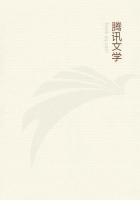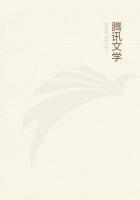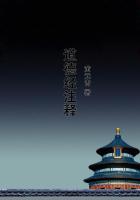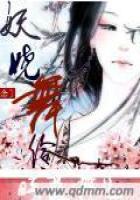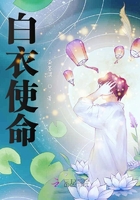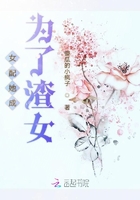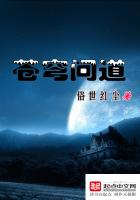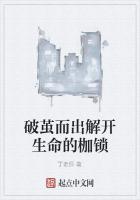FORESON. [Re-appearing] Sir?
VANE. I want "Props."
FORESON. [In a stentorian voice] "Props!"
[Another moth-eaten man appears through the French windows.]
VANE. Is that boulder firm?
PROPS. [Going to where, in front of the back-cloth, and apparently among its apple trees, lies the counterfeitment of a mossy boulder;he puts his foot on it] If, you don't put too much weight on it, sir.
VANE. It won't creak?
PROPS. Nao. [He mounts on it, and a dolorous creaking arises.]
VANE. Make that right. Let me see that lute.
[PROPS produces a property lute. While they scrutinize it, a broad man with broad leathery clean-shaven face and small mouth, occupied by the butt end of a cigar, has come on to the stage from Stage Left, and stands waiting to be noticed.]
PROPS. [Attracted by the scent of the cigar] The Boss, Sir.
VANE. [Turning to "PROPS"] That'll do, then.
["PROPS" goes out through the French windows.]
VANE. [To FRUST] Now, sir, we're all ready for rehearsal of "Orpheus with his Lute."FRUST. [In a cosmopolitan voice] "Orphoos with his loot!" That his loot, Mr Vane? Why didn't he pinch something more precious? Has this high-brow curtain-raiser of yours got any "pep" in it?
VANE. It has charm.
FRUST. I'd thought of "Pop goes the Weasel" with little Miggs. We kind of want a cock-tail before "Louisa loses," Mr Vane.
VANE. Well, sir, you'll see.
FRUST. This your lighting? It's a bit on the spiritool side. I've left my glass. Guess I'll sit in the front row. Ha'f a minute. Who plays this Orphoos?
VANE. George Fleetway.
FRUST. Has he got punch?
VANE. It's a very small part.
FRUST. Who are the others?
VANE. Guy Toone plays the Professor; Vanessa Hellgrove his wife;Maude Hopkins the faun.
FRUST. H'm! Names don't draw.
VANE. They're not expensive, any of them. Miss Hellgrove's a find, I think.
FRUST. Pretty?
VANE. Quite.
FRUST. Arty?
VANE. [Doubtfully] No. [With resolution] Look here, Mr FRUST, it's no use your expecting another "Pop goes the Weasel."FRUST. We-ell, if it's got punch and go, that'll be enough for me.
Let's get to it!
[He extinguishes his cigar and descends the steps and sits in the centre of the front row of the stalls.]
VANE. Mr Foreson?
FORESON. [Appearing through curtain, Right] Sir?
VANE. Beginners. Take your curtain down.
[He descends the steps and seats himself next to FRUST. The curtain goes down.]
[A woman's voice is heard singing very beautifully Sullivan's song: "Orpheus with his lute, with his lute made trees and the mountain tops that freeze'." etc.]
FRUST. Some voice!
The curtain rises. In the armchair the PROFESSOR is yawning, tall, thin, abstracted, and slightly grizzled in the hair. He has a pad of paper over his knee, ink on the stool to his right and the Encyclopedia volume on the stand to his left-barricaded in fact by the article he is writing. He is reading a page over to himself, but the words are drowned in the sound of the song his WIFE is singing in the next room, partly screened off by the curtain. She finishes, and stops. His voice can then be heard conning the words of his article.
PROF. "Orpheus symbolized the voice of Beauty, the call of life, luring us mortals with his song back from the graves we dig for ourselves. Probably the ancients realized this neither more nor less than we moderns. Mankind has not changed. The civilized being still hides the faun and the dryad within its broadcloth and its silk. And yet"--[He stops, with a dried-up air-rather impatiently] Go on, my dear! It helps the atmosphere.
[The voice of his WIFE begins again, gets as far as "made them sing" and stops dead, just as the PROFESSOR's pen is beginning to scratch. And suddenly, drawing the curtain further aside]
[SHE appears. Much younger than the PROFESSOR, pale, very pretty, of a Botticellian type in face, figure, and in her clinging cream-coloured frock. She gazes at her abstracted husband; then swiftly moves to the lintel of the open window, and stands looking out.]
THE WIFE. God! What beauty!
PROF. [Looking Up] Umm?
THE WIFE. I said: God! What beauty!
PROF. Aha!
THE WIFE. [Looking at him] Do you know that I have to repeat everything to you nowadays?
PROF. What?
THE WIFE. That I have to repeat----
PROF. Yes; I heard. I'm sorry. I get absorbed.
THE WIFE. In all but me.
PROF. [Startled] My dear, your song was helping me like anything to get the mood. This paper is the very deuce--to balance between the historical and the natural.
THE WIFE. Who wants the natural?
PROF. [Grumbling] Umm! Wish I thought that! Modern taste!
History may go hang; they're all for tuppence-coloured sentiment nowadays.
THE WIFE. [As if to herself] Is the Spring sentiment?
PROF. I beg your pardon, my dear; I didn't catch.
WIFE. [As if against her will--urged by some pent-up force] Beauty, beauty!
PROF. That's what I'm, trying to say here. The Orpheus legend symbolizes to this day the call of Beauty! [He takes up his pen, while she continues to stare out at the moonlight. Yawning] Dash it! I get so sleepy; I wish you'd tell them to make the after-dinner coffee twice as strong.
WIFE. I will.
PROF. How does this strike you? [Conning] "Many Renaissance pictures, especially those of Botticelli, Francesca and Piero di Cosimo were inspired by such legends as that of Orpheus, and we owe a tiny gem--like Raphael 'Apollo and Marsyas' to the same Pagan inspiration."WIFE. We owe it more than that--rebellion against the dry-as-dust.
PROF. Quite. I might develop that: "We owe it our revolt against the academic; or our disgust at 'big business,' and all the grossness of commercial success. We owe----". [His voice peters out.]
WIFE. It--love.
PROF. [Abstracted] Eh!
WIFE. I said: We owe it love.
PROF. [Rather startled] Possibly. But--er [With a dry smile]
I mustn't say that here--hardly!
WIFE. [To herself and the moonlight] Orpheus with his lute!
PROF. Most people think a lute is a sort of flute. [Yawning heavily] My dear, if you're not going to sing again, d'you mind sitting down? I want to concentrate.
WIFE. I'm going out.
PROF. Mind the dew!

